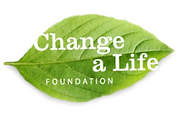
MICROENTERPRISE & EDUCATION
Paving the Way
Some of the widows and grandmothers who are actively participating in Operation Orphan Rescue are able to embark on a transformative journey. Alongside their children and grandchildren, they have the chance to start businesses and build a brighter future for their families. This not only offers economic opportunities but also brings hope and stability to their lives. These incredible women pave the way for a better life, setting an inspiring example for their loved ones and the entire community.


Family Businesses
Broiler bird rearing businesses help families in the villages, prioritizing elderly grandparents caring for grandchildren affected by AIDS or Malaria. These families demonstrate both the capability and willingness to run businesses while ensuring their children's well-being. Through a cost-effective education program, costing just $300.00 per family, we empower them with the skills to establish a profitable venture. The business yields an impressive profit of over $135.90 every six weeks, allowing them to repay the loan within six months. This sustainable cycle of empowerment paves the way for a brighter future and creates positive change within the community.

Sustainability
This holistic model nurtures an environment for economic, spiritual, and personal growth. It empowers individuals to become catalysts of change in their own lives. The local community actively participates, fostering ownership and long-term sustainability. People in the area thrive, achieving self-sufficiency and breaking free from dependency. This approach fosters a shift towards prosperity and self-reliance, leaving behind the need for handouts.


Vocational Education
In addition to the broiler bird rearing businesses, we are also implementing various forms of vocational education in trades and agriculture. The villages now include pigs, chickens, goats, cows, and gardens, all of which contribute to food production for the children. This integrated model follows a specific distribution strategy. Forty percent of the produce is allocated for direct consumption by the children, ensuring their nutritional needs are met. The remaining sixty percent is sold in the market, generating income that is reinvested in the village's storehouse. This not only provides sustenance for the children but also creates a sustainable source of income for the community, fostering long-term growth and Biblical stewardship.